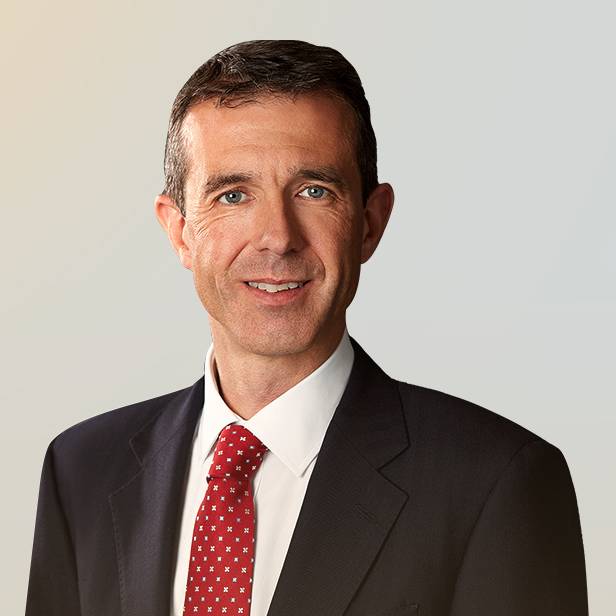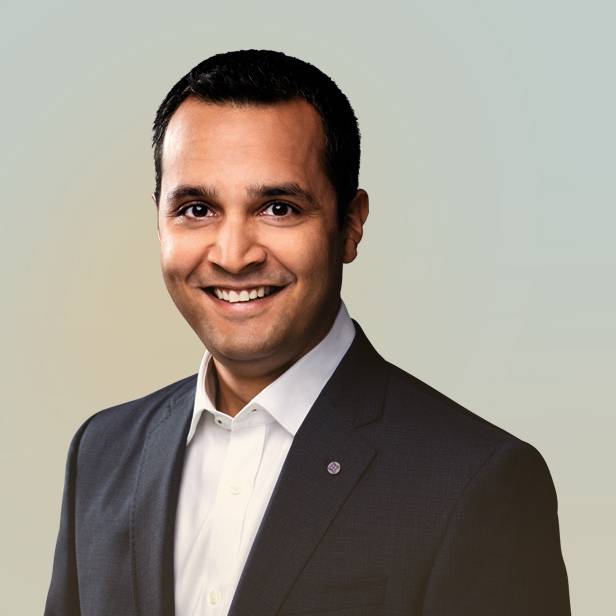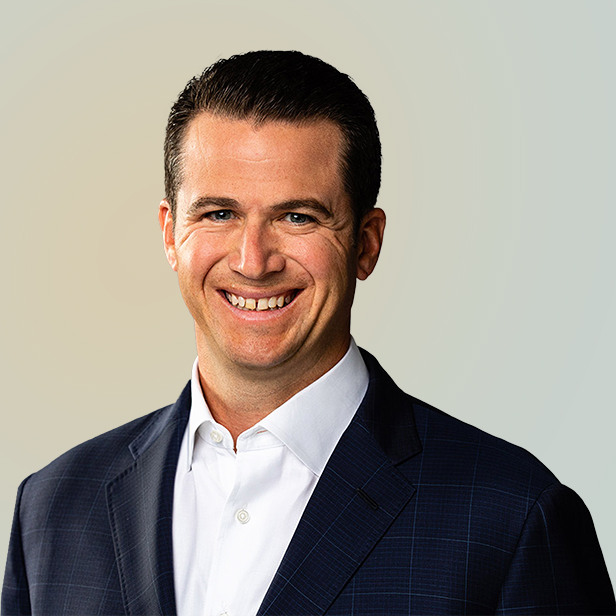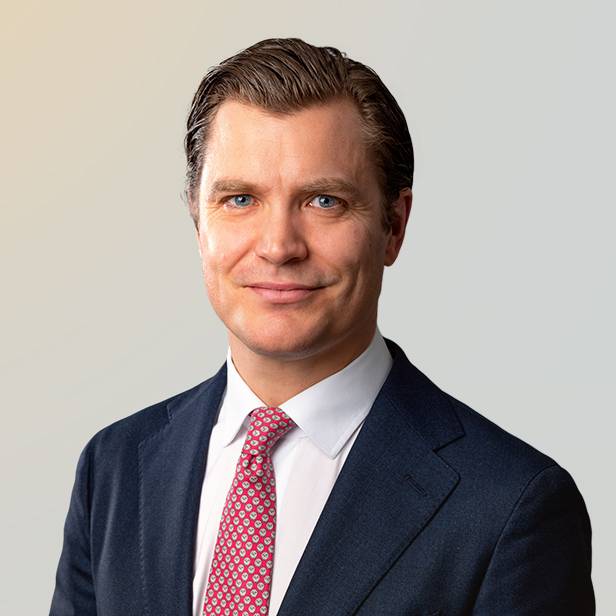How is the Rapid Pace of Digitalization Causing Disruption Across Industry Verticals?
Nov 2019
Lincoln International Managing Directors share how digitalization is causing disruption across Technology, Media & Telecom, Business Services and Healthcare.
Click below for a glimpse of the conversation or complete the form to watch the full discussion.
Summary
-
Experts in Lincoln International's Technology, Media & Telecom, Business Services and Healthcare discuss the impact of digitalization for business owners and investors.
- Sign up to receive Lincoln's perspectives
To watch the full video, please complete the form below:
How is the rapid pace of digitalization causing disruption across industry verticals?
Barry: It may seem ironic to talk about healthcare in the same breath as digital tools, since I think everyone recognizes healthcare as an industry as probably years, if not decades, behind the rest of the economy in terms of its adoption of technology. That said there’s a tremendous groundswell that’s been going on for many years now, of technology-related businesses and digital tool companies that are radically changing the way healthcare is managed, delivered, paid for, tracked, and even the way drugs are discovered. We have a number of companies that are presenting here today that are a part of that major change that we are seeing. But really across the delivery of care, whether you’re talking about telehealth, you’re talking about patient engagement in their own health through population health management companies, other kinds of even payment businesses that are reducing the opacity that healthcare generally has in terms of the ability of the consumer to understand the cost of the underlying procedure that’s taking place. There’s just a whole host of different technologies and digital tools that are changing the delivery of care and the way it’s managed, but you know really as a function of the tremendous global budgetary and political pressures that are out there to try and improve quality, improve access and reduce cost, technology is a necessary solve for healthcare going forward.
Francois Carlot: To start with your point Barry, I think we are seeing the same for instance on the retail industry. It goes without saying that retail is going through a profound transformation and being challenged, simply by the ease, customization, speed of digital retail. So, how do you stay relevant? Some of our customers for instance are answering such questions as “how do you know, do you better know your customers when you’re in physical retails such as you do with digital retail? How do you reach out to your customers in a meaningful way, engage with them, locally in your store area for instance? And earlier this year, one of our clients, we got them to partner with a more traditional marketing firm, and with Salesforce to deliver just that for retail. Another segment on retail where we’re quite active and it’s really transforming the way retailers operate is the product information management segments (PIM segments). Basically, they help retailers collaborate in a meaningful way with brands, with manufacturers to collaborate on product information to ultimately improve sales conversion and by doing so, transforming the way they operate as organizations.
Saurin – Just to build on that, it’s interesting if you think about healthcare, retail, industrials, U.S., Europe, Asia, one of the areas we’re seeing a lot of growth is just the delivery of that bandwidth, of that technology, of that infrastructure. And so as we look at the engineering firms that are doing the design and engineering of the telecom, bandwidth and fiber networks and we think about groups that are doing the installation, maintenance and repair of those networks, we are seeing multi decade tailwinds in many of those end markets that are driving long-term growth. And that’s not only around 5G or improved healthcare services, or Internet of Things or whatever your latest buzzwords are, there’s a whole wave of incremental growth that’s going to occur around things like data Super-Cycle, where you have data huts that will be sitting in the basement of a hotel like this or a parking garage across the street or autonomous driving that’s going to require a tremendous level of capacity and bandwidth. And so we’re seeing a tremendous amount of growth in businesses that are helping deliver and maintain those networks. Two other perspectives and I think it’s interesting, we also work with a lot of professional services companies,, and Rob, you started this panel by talking about the ability to maintain and retain talent density. There’s a war for talent as we’ve all heard of and know about. We’re seeing businesses use digitization to help improve utilization and efficiency as it becomes more difficult to recruit people and as demand for services continues to grow. How do you use software and tools and automation to get more out of the existing workforce or even improve the efficiency of the workforce you have? And I think the third perspective is internally focusing, for professional services organizations, is to use digitization to help drive employee engagement within the four walls of your organization – ongoing continuing education, training modules, educational seminars that your employees can access on his/her time and really continue to foster employee development, employee progression within an organization with the hopes of retaining that talent density within your firm.
Chris Brooks: What is clear is that digital transformation really is impacting all industries. The three of us in the middle here are all in the technology sector, but it’s pretty clear that every industry needs to take enablement in some way in order to survive. I think day-to-day, I am spending an increasing amount of my time, not just working within the global technology group but within our other sector teams as well – business services, healthcare, but also in Europe where the industrial sector is also strong. A lot of times with the industrials team and consumer team as well. Well, what does that also mean? I think it means we’re just going to see a lot more software development. It seems that software has already been driving a really high proportion of M&A volumes. I think that’s only going to increase. As every company needs to need to digitalize in some way, a lot of them aren’t very good at developing software internally – it’s not their core business. So, I think there’s going to be a fantastic range of opportunities for new software businesses to develop, for the outsourced software development sector as well. So, I think we’re going to see digital transformation really help drive, if anything, more and more software over the coming years.
Will Bowmer: I’m going to play my typical role as the contrarian, and rain on the digitization parade right now. Just riffing on what Saurin said about all the bandwidth, all the connections that are required, that’s absolutely true. Tremendous amounts of data, it’s all good, except that to use all that data and to connect all that data means all that infrastructure is subject to being hacked and all that data is subject to being stolen or misappropriated. So, another incredible growth area is cybersecurity, because every time we increase the amount of data we are using and the amount of analytics we’re using, we’re also increasing the perimeter that’s subject to hacking. You’ll see some really interesting companies here today that either do mobile app testing, that provides security services, so I encourage you to spend time with companies like that if this is of interest. It’s a huge market. I want to plug our newsletter that went out in July that mentioned this is $120 billion industry, so not only is it high growth, there’s lots of room for continued growth in cybersecurity.
Contributors

I am inspired by working with entrepreneurs and innovators who feel passionately about what they are creating.
William Bowmer
Managing Director & Co-head of Technology, U.S.
San Francisco
I deliver a hands-on approach to provide strategic advice to my clients throughout the transaction and beyond.
Chris Brooks
Managing Director & Co-head of Technology, Europe
London
My goal is to inspire and motivate our people to make a true impact with their clients, their colleagues and their communities.
Robert Brown
CEO | Managing Director | GP-Director
Chicago
As a trusted advisor, my role is to listen, create options and pursue the path that best achieves a client’s total objectives.
Saurin Mehta
Managing Director & Co-head of Business Services
ChicagoMeet our Senior Team

I am a rigorous advocate for my clients with a hands-on, communicative approach, focused on delivering intense advocacy and outlier results.
Sean Bennis
Managing Director & Co-head of Industrials
Chicago
I am enthusiastic about creating sustainable growth and the highest value for our clients and strive to leave a positive footprint beyond any successful M&A transaction.
Friedrich Bieselt
Managing Director & Head of Business Services, Europe
Frankfurt
I enjoy leading clients and realizing their objectives, while structuring solutions to issues that are both intriguing and challenging.
Øyvind Bjordal
Managing Director & Head of Switzerland
Zurich









